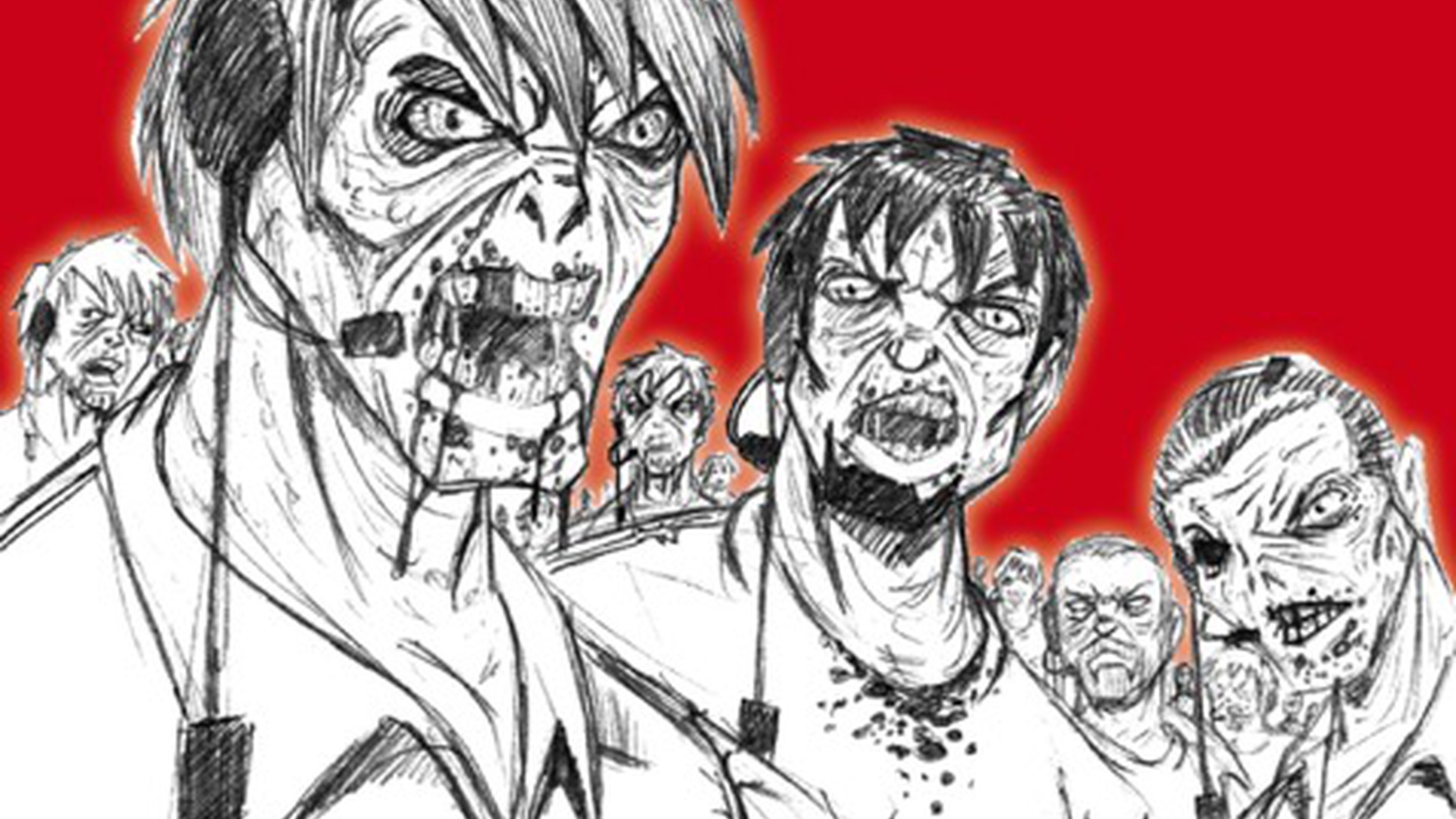A Factory of Words and Smiles: Notes from a Call Centre Inquiry in Calabria
by
Achille Marotta,
Enda Brophy (@enda_b),
Francesco Maria Pezzulli
February 14, 2019
Featured in The Call Centre Seen from Below (#6)
Notes from a Call Centre Inquiry in Calabria

inquiry
A Factory of Words and Smiles: Notes from a Call Centre Inquiry in Calabria
by
Achille Marotta,
Enda Brophy,
Francesco Maria Pezzulli
/
Feb. 14, 2019
in
The Call Centre Seen from Below
(#6)
Notes from a Call Centre Inquiry in Calabria
Translated by Achille Marotta and Enda Brophy.
Introduction
The idea of carrying out a political inquiry in Calabrian call centres was born from a seminar titled “New welfare for a common South”, organised in 2012 by the Associazione Sudcomune at the University of Calabria in Cosenza. It was inspired by the persistence of a blocked local political situation, a context where social struggles, though present, met notable difficulties in “rooting themselves” in the territory, in taking those more conscious subjectivities active in short-term struggle and uniting them around a medium-range political perspective. We should add that the Uninomade 2.0 collective, in which the author took part, had already widely discussed the analytical and interpretative qualities of co-research - especially the ability to maintain the unity between the cognitive and political moments of the approach - in specific sectors of modern capitalist reality.
The discussion which followed the seminar convinced some of us to put the workerist method of inquiry to the test in the Calabrian context. We therefore began an inquiry in one of the largest factories of the cognitive proletariat in the region - employing over 10,000 people, second only to the public service sector1 - to favour processes of subjectivation among outbound call centre operators and to uncover the characteristics of their potential political protagonism. We are reconstructing some of the fundamental knowledge of call centres in order to better approach our fieldwork: investigating the entrepreneurial disposition, the modes of management and the exploitation of operators, the valorisation process, the technologies implemented, and so on. But above all, we are meeting the operators in collective discussions regarding their conditions of life and work, through which we manage to identify subjective tendencies within workplaces. The richness of these encounters has been surprising. Especially striking is the distance between the forms of valorisation (centered around general and technical knowledge as well as interpersonal, communicative and linguistic abilities, in other words, the “common” of the operators) and the organisational arrangements of production, founded on processes of the industrialisation of cognitive labour (a sort of digital Taylorism) which harness - “log” - the body and mind of workers. The operators’ performance is constantly evaluated, as are their lived emotional states, their degree of trustworthiness with regards to the company and, conversely, their potential for conflictuality. All of this generates heavy forms of alienation which on the one hand produce serious psychophysical ailments, and on the other hand are functional to the production of the “good operator”.
The following notes are an attempt to briefly describe the salient aspects of work organisation in call centres and the critical issues they imply in processes of subjectivation of outbound operators and in the activation of political and organisational dynamics.
Logging subjects
As we have noted elsewhere, the sale of a product or service in a call centre is strongly favoured by the abilities which operators have acquired in their own experiences of life and socialisation. We are speaking, in other words, of linguistic, interpersonal and communication skills: common qualities of human beings which, by their very nature, cannot be separated from their bearers. The labour process in call centres, which defines their particular entrepreneurial form, responds to the need to utilise these “inseparable qualities” without a recognition of the operator’s possession of them. This is achieved through a classic capitalist method which closely resembles the Taylorist factory.
A factory of words and smiles, that notwithstanding this is built on the basis of repetitive procedures, where the assembly line is reinvented. This reinvention exemplifies the call centre company form, that is to say the organisation of the exploitation of cognitive work: all operators in the same “open space” are atomised into single, non-communicating stations, and are “logged” into the software which manages them, helps them, supports them during every activity and performance. This software is the informational assembly line, on which operators are placed as thinking appendages, in the sense that their work consists of the execution of the software’s orders in the verbal and behavioural modes it indicates through the information which appears on the display screen. The software, to borrow a term from Taylor, represents “science which replaces the old approximative knowledge of the workers”. The computer system implements the orders of “management”, namely the expropriation of the operators’ knowledge and its standardisation in procedures, laws, rules and formulas. These are then synthesised into dedicated scripts and imposed back onto the operators through the display screen as alien and impersonal phenomena to which the workers must slavishly comply with, with no room for manoeuvre other than that which is imposed.
The relationship between operator and software is, moreover, mediated by other managerial figures. There is a direct relationship with the team leader, who is closest to the workstation and is the contemporary, postmodern manifestation of the timekeeper. He ensures the rhythm is maintained and monitors workers to ensure that activities are performed according to management’s specifications. He’s the watchful eye which gets in the way of even the most minimal communication between operators, unless it complies with the company criteria of problem solving. We also find other figures in the call centre who support the subordination of the operator to the software and fulfill a strategic role from the organisational point of view (like senior and junior managers who deal with the training and management of human resources, or promotion and marketing, or the acquisition of contracts, etc, or supervisors who manage and coordinate the activities of team leaders and operators) but what we want to emphasise here is that the call centre labour process is built as a real apparatus of capture, which allows for the capitalist valorisation of the social qualities of operators. These qualities are the great lacuna in both the histories and journalistic treatments of call centres. The bosses pretend they don’t exist: they don’t recognise them formally and consider them to be exclusively an asset of the company and not as qualities possessed by the operators. The bosses’ silence is echoed by trade union activity, which has never posed the problem of the “common qualities at work”, but has rather always attempted to neutralise through a discussion of issues regarding “quality of work”: security, hygiene, pace of work, etc., as if we were dealing with the kind of work that would be typical of the mass worker.
The call centre labour process, we repeat, constitutes a rational apparatus of capture: it is a Taylorist factory of words, emotions and smiles in which the organisational function of the entrepreneur persists. This function is changed, sometimes it is unrecognisable, but it is nonetheless carefully designed to simultaneously ensnare both body and mind. We are dealing with a particularly violent form of labour process, which seeks to capture and channel the social qualities of operators, a procedure for which the degree of alienation of the subject is directly proportional to the results of the capture, and thus to the internal cohesion of the company and the achievement of its economic objectives. Thus, alienation is not merely the result of the process of exploiting operators. It’s the substance which lubricates the reproduction of the entire labour process. From the operators’ viewpoint it’s a negative state of mind which follows them for the whole day, not just during the time they spend logged in at work. We can say that economic valorisation in a call centre passes necessarily through the production of alienated subjectivity.
Escape as refusal
The outbound operator does not feel like a cognitive worker, often he doesn’t even know that he is one. He experiences his condition as something natural and unchangeable. Call centre workers’ expectations decline steadily. The willingness to make demands of the employer is thus very weak, and usually presents itself after the failure of all other forms of mediation, whether it be through friends, family or relatives. The will to struggle is, moreover, ambiguous, messily channelled through trade union mediation, which in Calabria often presents itself as clientelistic.
This does not take away the fact that struggles have taken place over the past two years: national strikes, the notti bianche experience organized by trade unions;2 important struggles like those in Palermo, Catania and Lamezia Terme; sporadic cases of occupations by workers, like those at Accenture in Palermo and Call&Call in Rende; instances of sabotage, like the raid of Wind and the destruction of workspaces in Catania; more or less organised forms of protest like those at Acea and Almaviva in Rome, and so on. But these experiences, among others, were waves of struggle which receded immediately. Sometimes they did so spontaneously, other times they were smothered by the union, for whom the highest demand possible today in Italy is to only be exploited on par with the “more fortunate” Italian operators, rather than as badly as the Romanian or Albanian operators. Certainly not equally to the Calabrian operators, we should add, insofar as the Cosenza-Rende conurbation is an area where the intensive exploitation of operators is superior, where immaterial labour costs less, and the legal ramifications of the labour relation are almost nonexistent.
In recent years call centres have been able to take advantage of the economic and social crisis, increasing their profits by exploiting the operators’ vulnerability to management threats and the workers’ willingness to submit to entrepreneurial ideologies in order to enforce reductions in pay. According to management’s ideology a good operator can professionally handle a greater number of phone calls in the average conversation time, is able to face complaints, overcome objections and deal with various types of clients based on their attitude. A good operator, in other words, convinces himself and accepts, without complaint, the principle according to which professional success depends exclusively on the individual, on his own capacities, on the degree of flexibility he is able to offer, on the level of performance he is able to maintain. In brief, a good operator, by alienating himself, adheres to the ideological values of the company as if they were his own. Those who can manage it flee the court of the call centre capitalists, entrepreneurs, managers and trade unionists, thus attempting to escape the alienating domination of the company hierarchy. On the political, collective level, this escape is not comparable to a struggle, but it is nonetheless a signal of the workforce’s refusal to submit in the face of these factories of precarity and malaise.
Since 2007, the Cosenza area has had the highest birth and failure rate for enterprises, even as it maintains the highest absolute number of call centre businesses. These are precarious enterprises servicing large national corporate groups, to which they are inextricably tied. The Cosenza Valley (as it is called by call centre management to refer to those places where immaterial labour is cheaper and where the legal implications of their relation to operators are virtually nonexistent) employs 70% of workers on freelance contracts [contratti a progetto], with the rest being divided almost equally between the other two provinces. Conversely, Catanzaro is the heart of the sector. Here we find the principal businesses (three out of nine are owned by the region’s main political-entrepreneurial actors) which practically define the entire sector: they employ over 5,000 workers, over 1,500 of which in turn operate in the Cosenza office. Meanwhile, Reggio Calabria represents an anomaly in terms of company size, of the type of conglomerate and of the working conditions: over 1,000 operators, of which less than half are on temporary contracts, and three medium-size enterprises (200-250 employees) headquartered elsewhere (particularly in Milan). For a more in-depth discussion of the entrepreneurial structure of Calabrian call centres and the results of the inquiry see Francesco Maria Pezzulli, “Il Prezzo di un sorriso” in Quaderni di Sudcomune n.1/2017 (Edizioni Erranti).
-
In Calabria there are over 10,000 call centre operators, about 5,700 of whom are permanent employees. Most are part-time workers with a contract of 20 hours a week, with second- or third-level standing within the national labour contract for telecommunications. They earn about 700 euro a month, while the almost 3,000 temporary workers earn about 500. We should note that this data cannot be precise, as in Calabrian call centres we find a high turnover rate given to the frequent rise and fall of small to medium companies which survive on irregular subcontracts gained by the lowest bidder. ↩
-
The notti bianche dei call centre [literally, a call centre all-nighter] was a union-organized demonstration that sought to highlight the more controversial aspects of call centre work. The name was adopted from similar demonstrations such as the “notte bianca dei ricercatori” (dedicated to precarious university researchers) e “notte bianca degli studenti” (students), and, more broadly, from the urban cultural events which last through the night. ↩
Featured in The Call Centre Seen from Below (#6)
Subscribe to Notes from Below
Subscribe now to Notes from Below, and get our print issues sent to your front door three times a year. For every subscriber, we’re also able to print a load of free copies to hand out in workplaces, neighbourhoods, prisons and picket lines. Can you subscribe now and support us in spreading Marxist ideas in the workplace?


